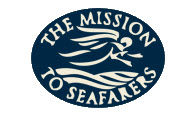For their safe and efficient operations, ships depend on seafarers working far from their home and family for months, sometimes years – often in harsh and dangerous conditions.
As an island nation Australia relies on seafarers. The work of the Mission to Seafarers is a way of acknowledging their work and hardships, by provision of support.
The Mission to Seafarers is an international mission of the Anglican Church which cares for the practical and spiritual welfare of seafarers of all nationalities and faiths. There are 230 Mission sites around the world. In Victoria, at our 4 centres, work is carried out by chaplains, other staff and volunteers who give freely of their time 365 days of the year. Seafarers are visited on their ships and offered a welcome and whatever help they need. This can range from enabling them to telephone or email home, to offering comfort to the bereaved and assisting in cases of injustice and distress.
While most seafarers are well treated, some are still abandoned in ports far from their homes, or remain unpaid or forced to work in unsafe or unacceptable conditions. In such situations, the Mission plays a vital role in providing practical care and moral support.
In an article written regarding the effects of depression and the seafaring community, titled ‘Dogs Under the Table’, author Ruth G. Mercado wrote “Death can take the agonizing process of healing for those left behind, but then depression is equally excruciating for seafarers”
Far from the romantic adventures of the Arabian Nights’ “Sinbad the Sailor,” many seafarers consider depression to be their biggest storm at sea. Sailor Rod Ivan Puno wrote “Life at sea is like living in an aging world, a prisoner of opportunity, convicted for survival. As the sailor embraces the sea, he counts on lonely nights, killed in forbearance, crying in silence.”
Describing the life of a seafarer as a “prisoner of the sea,” third mate Tere-sito Veano, in moving prose wrote, “We, seamen, are like prisoners. We are deprived to be with our families, friends and loved ones.”

